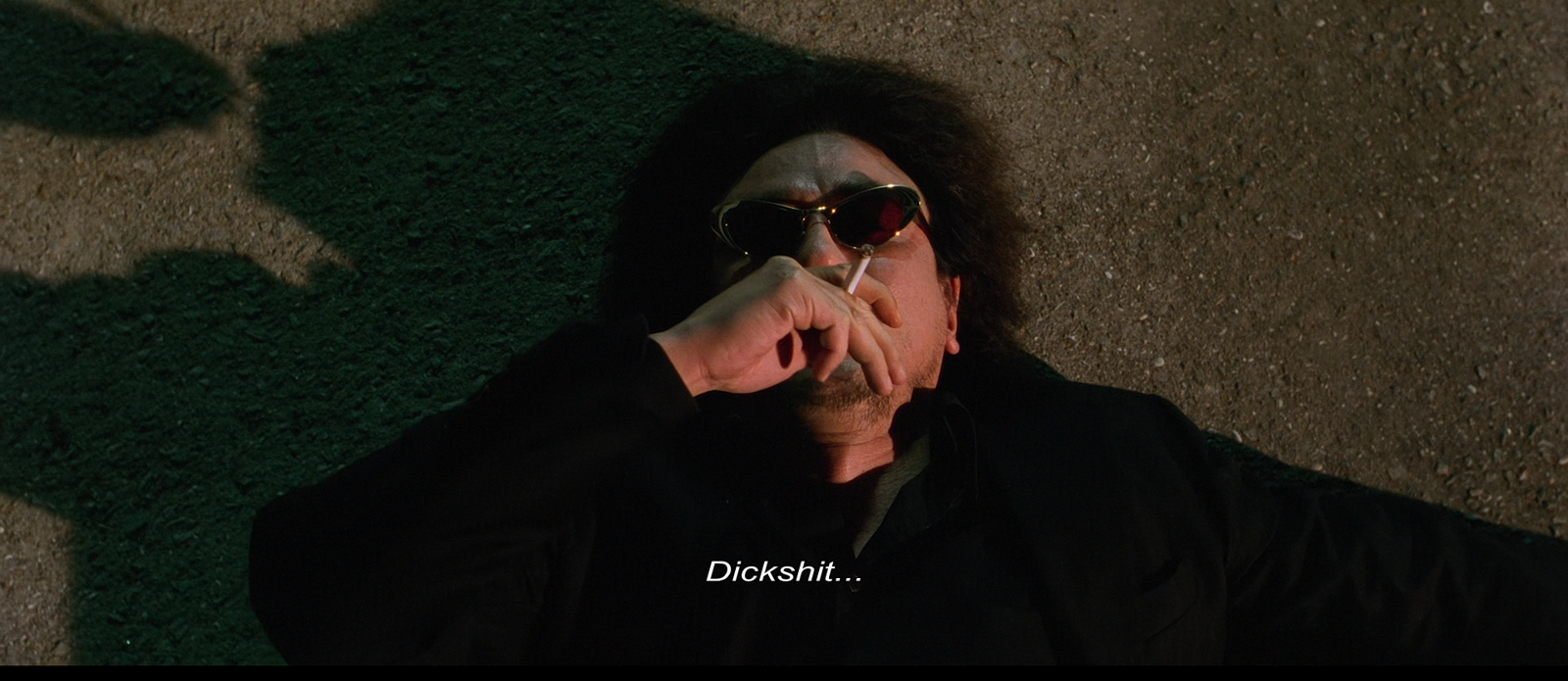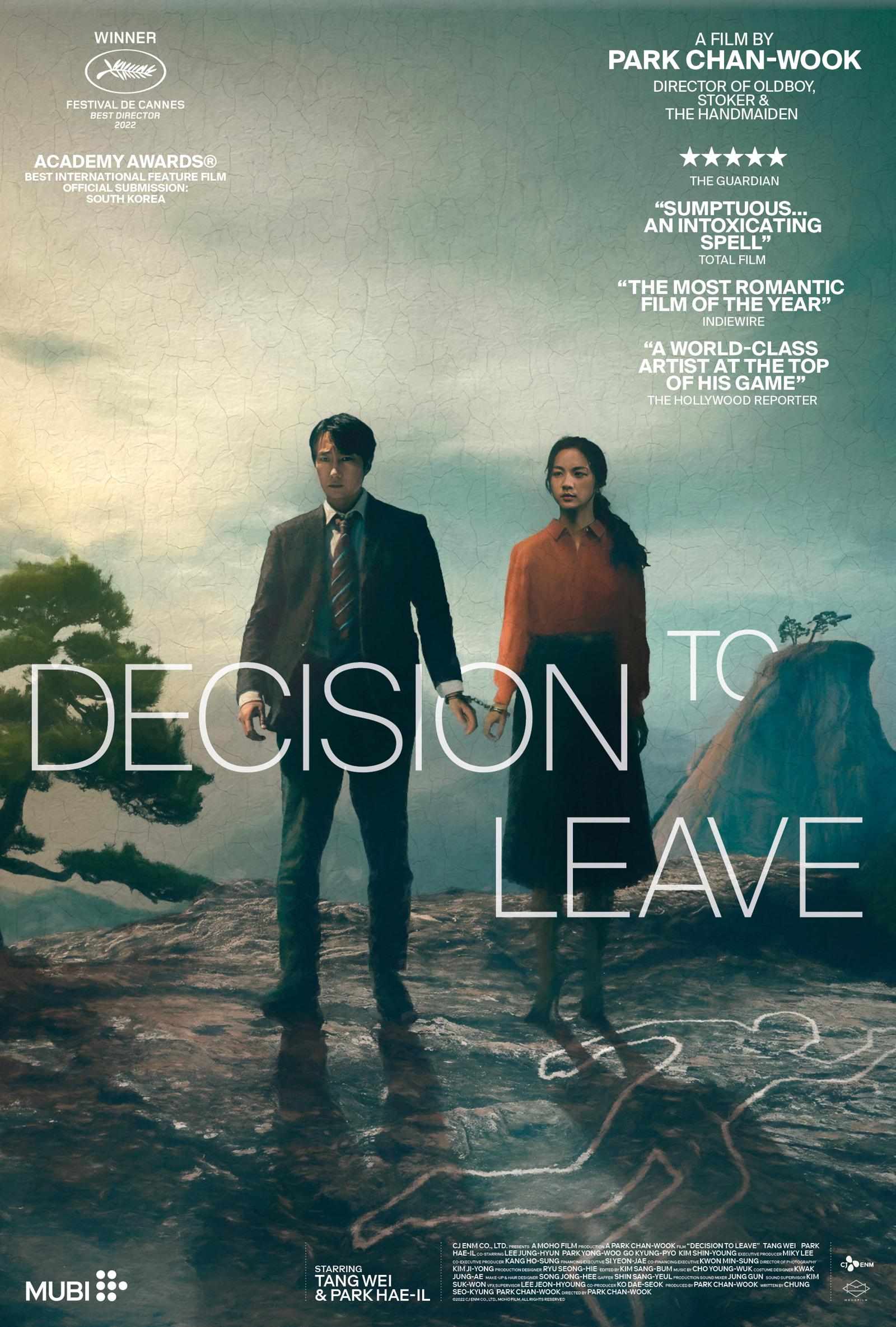
I still remember the first time I watched Oldboy - it was recommended to me during the lockdown era and I had too much time on my hands. That was the day I became a fan of Park Chan-wook's work and immediately delved into his filmography, binging all his films. There was a point in that period where I felt an Oldboy rewatch was mandatory - it was the only film I had kept downloaded on my phone for a very long time. It was during this rewatch that I noticed something that I still haven't forgotten - in the scene where Oh Dae-su encounters the outside world for the first time since being released from capture, he runs into a gang of street punks who promptly call him "Jjeoppangsae", subtitled as "Dickhead." This is a new word for Oh Dae-su, who has been cut off from the outside world for 16 years and has not been updated about the new words introduced into the Korean language (talk about being a boomer). Apart from the fact that I could relate with him in the sense that I too was forcibly holed up in my room rotting my time away for what seemed to be a frustratingly uncertain length of time, this was something I found fascinating. I too picked up words like this.

A year or two later, once all the virus-related hoo-ha had calmed down and things were slowly reverting to normalcy (for me at least), Park Chan-wook dropped a bombshell in the form of an announcement for the film Decision To Leave. I was so excited about it that I counted down the days until its Mubi release and when the time to watch it came, I was devastated. Old PCW had done it again, leaving me in tatters and possibly my favourite romcom of all time. I loved it so much that it compelled a rewatch, which I did on New Year's Day, giving in to my yearning urges again. This time around, there was something else about the film that caught my attention. Maybe it was because of the whole "jjeoppangsae" shebang that I paid such close attention to detail, or because I was someone who also indulged in these behavioural traits, but the character of Song Seo-rae became something of a mirror for me.

When being interrogated after her husband's death, Song Seo-rae tells the detective "He perished as he wished." When the detective appears confused, she mutters to herself "Is 'perished' correct?" and lets out a little giggle. Now, the intricacies of the Korean language are lost on me, a subtitle reader and 4-5-words-of-Korean-knower, but given the context of another scene where in place of 'lone' she uses "Anyiram", subtitled as "solitary", and giggles again, she explains that she laughs when she gets her Korean wrong, especially when using the wrong words. For a man whose mother tongue is Telugu and who has spent his entire life being laughed at and corrected by other people for using words that are odd in sentences in a language that I had to learn to survive in Trivandrum, this resonated with me immediately. All through college, my friend group would point out absurdities in my sentences and we would have a laugh over them.
I passed my first Malayalam exam in the fourth standard. I grew up speaking English and Telugu at home, and this was the first time I was faced with the reality that if I didn't learn to read, speak, and write Malayalam, I would have a tough time here. We had Hindi for our third language being introduced that year, and while that was a bit more lax given that the entire class knew zilch in Hindi, the same could not be said for Malayalam, everyone's mother tongue. Thus began my grappling with the concept of learning a new language. I would read children's books in Malayalam, meant for kids 3-4 years younger than me, and watch Malayalam films with my family, repeating to myself words I could not understand for the life of me but mugging them up anyway.
During her first encounter with the detective, Song Seo-rae uses the word "Majimnae", subtitled as "At last". The detective is surprised by her, who had introduced herself to him as a Chinese immigrant, and her usage of the word. A few shots later, we see her watching a sageuk (genre of historical visual media/play in South Korea), and repeating the dialogues of the characters in the show, mouthing "Am I so wicked?", words she later repeats to the detective.
Even though she pulls herself together and stays confident throughout the film, her demeanours with the Korean folk tend to be awkward, given that Korean isn't her native tongue and she isn't comfortable with it. I got rid of Malayalam in the eighth standard and chose Hindi instead because I was sure I would fail the former. That postponed my inevitable crashing-to-earth which happened once I joined college. I would speak to the other students in English partly because of having grown up in a privileged bubble in an English-medium school, and being an 'outsider', but this was not something I could sustain. Not everyone was comfortable with English, and I couldn't understand the different dialects of Malayalam that were being spoken by everyone - I had grown up in Trivandrum and was not exposed to people from any other district. This was a terrible phase for me because now I did not know how to talk to people. This affected my confidence and in turn, made my demeanour an awkward one.
Towards the beginning of my third year in college, I had finally found refuge in a friend group that had a significant grasp of the language and wrote very well too. To be able to read what they wrote and understand the beauty of their imagination was something that was still out of my reach. I took it upon myself to learn the language once and for all, to understand their poetry and articles, and to try to make more acquaintances. During our conversations, whenever someone would use a word that was "hard", I would stop them mid-sentence to ask them what the word meant, so much so to the point where they started doing that themselves. Detective Jung Hae-jun asks Soo-wan to explain to Song Seo-rae that an autopsy needs to be performed on her husband, and he asks him to do so by "using easy words." Later, when cooking for her, Jung Hae-jun explains to her the nature of his work and the cases he has come across. Each time he uses a 'hard' word, like "unresolved" or "insomnia", he immediately interrupts himself and explains what the words mean.
When Detective Jung tells Song that he is now "shattered", she nods understandingly, then waits till he leaves to search up what the word means. Countless times I have pretended to understand what someone tells me, noting down the words I don't understand, and waited until I get back home to search up what they mean, only to realise that my actions in response to the words spoken to me were not indicative of an appropriate one. That would set in motion an hour's session of overthinking and extreme embarrassment, that could have been saved by the embarrassment of having to ask the person during a serious conversation what that particular word meant.
Learning to adapt also means mimicking and imbibing traits of the people around you. A significant portion of my vocabulary is from me picking up words and phrases from the people I love and admire. When Detective Jung is wished a "Good morning" by Song, he starts his next day by wishing his team members an uncharacteristic "Good morning", and the same for the next to his superior officer. While staking out Song's apartment, he whispers into his watch "Majimnae", the word that Song had used in their first conversation. While this wasn't Song I was relating to here, it was an important trait that I could not go without mentioning. I am an amalgamation of all the things I have found cool and adapted into my personality.
The attention to detail in the dialogue for an immigrant learning and adapting to another culture is impeccable, and for this reason, will always be a deeply personal film to me. For most of the film, I was able to look so deep into the film I was staring at a reflection of myself. I moved to Chennai nearly a year back, and have already learnt how to read Tamil and speak an acceptable amount of the language. Learning new languages and scripts is almost a reflex for me now, and I want to learn even more
It has been a long time since I have done any self-introspection, and a rewatch of PCW's masterpiece has brought about that urge in me on New Year's Day. I made the right decision making this the first watch of the year for me.








Write a comment ...